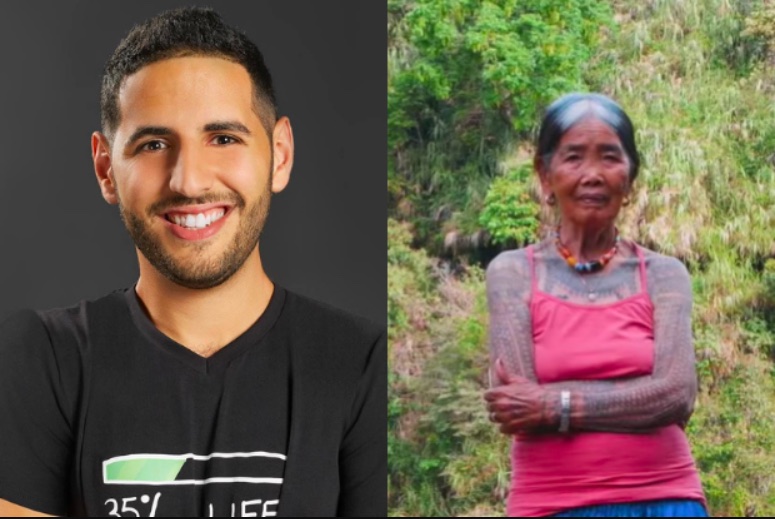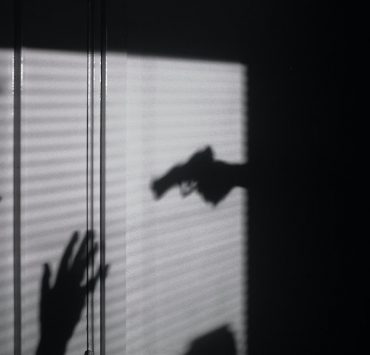Nas Daily’s number is up—and it’s not looking very good for the viral one-minute man. ICYMI, Israeli vlogger Nuseir Yassin put up an online masterclass on Nas Academy featuring literal national treasure Apo Whang-Od. The online class he claimed she’d be teaching was supposedly going to feature Whang-Od revealing the secrets and techniques of her traditional tattooing practice.
After Whang-Od’s niece, Gracia Palicas, claimed it was a scam on a public Facebook group, Yassin took the class down. You’d think that was the end of the issue, but boy does it go deeper than that.
“WARNING! Whang Od Academy is a scam!"
— Inquirer (@inquirerdotnet) August 4, 2021
Online content creator Nuseir Yassin, who maintains the Facebook page Nas Daily, has taken down the online course featuring tattoo master Apo Whang-Od after her grandniece called it out for being a “scam.”
READ: https://t.co/h9QbjFaOuy pic.twitter.com/2QSNx34vvT
More people “came forward” with more accusations against Yassin (like “mocking” a local language), and the entire affair turned into a circus of finger-pointing. Multiple statements have been issued by new accusers, people accusing those accusers, people accusing those who accused the accusers, and Yassin refuting those statements.
It’s drama that can’t be encapsulated in a minute. But more importantly, it’s a smokescreen for the real underlying issue.
A foreign man jumped at the chance to take advantage of Kalinga cultural heritage by selling its secrets for a mere P750. Instead of addressing the issue, apologizing, and acknowledging that our culture is not his to profit from, he instead uses this entire blame-game ecosystem to create a distraction from everything he’s done wrong.
That’s literally colonialist-type exploitation. This isn’t the first time it’s happened, and more importantly, he’s not the only one who’s doing it.
Soft selling colonialism
The white man’s burden has never disappeared; it’s just gone online. And it’s not just the white man anymore. These new “explorers” are “discovering” our culture (much like they “discovered” our lands) and treat themselves as authorities on the matter.
A recent example is when a group of white women “refreshed” and “revamped” the ancient Chinese game of mahjong and sold their “modernized” tiles for over $400.
Much like the conquistadors of the past, they position themselves as agents of discovery—even though we’re not theirs to discover. We have been here all this time, but to some, we only gain purpose or relevance when someone speaks on our behalf and presents us to the world stage.
The dos and don’ts of presenting a culture
Before someone points a finger at this article for hasty generalization, the truth is there’s nothing wrong with making a video about another culture. What is wrong is when it becomes exploitative.
When does it become exploitative? When you don’t treat the people with respect. In Nas Daily’s case, he “claimed” to have permission from Whang-Od herself, but if he did a little research, he would have known that Whang-Od doesn’t have the authority to give permission by herself.
According to cultural anthropologist Dr. Nestor Castro, Whang-Od may be the individual artist, but the art of tattooing belongs to the Butbut Tribe. It’s their collective property passed down from the knowledge and practices of the Kalinga ancestors that came before them.
“The consent of the members of the Butbut is necessary if this knowledge is to be shared to outsiders. Getting the permission of one individual is not enough,” Castro wrote in a Facebook post on Aug. 6.
Something common across foreign content creators making videos about the “global south” is that they speak on our behalf. They’re the ones relaying the information to the audiences instead of letting us speak for ourselves. They act as the primary storyteller and authority, with our voices being limited to soundbites and quirky quotes to prove just how different we are from the rest of the “developed” world.
Making any type of content about another culture should ground itself on respect and research. Know what you’re talking about by being genuinely curious and interested in what people have to say instead of just chasing metrics.
New-age exploitation
Sadly, this type of content really sells. Content creators like Nas Daily, et al. have made a killing when it comes to likes, shares, reactions, and views on their videos, and we are their primary audience.
A Filipino content creator could make the exact same video, but it would not garner as much attention because we think people outside our country won’t see it. On the other hand, if a foreign content creator makes a similar video, the comments are always flooded with “Pinoy pride!” and similar sentiments.
We’ve been conditioned to seek and bask in the approval of other people because we were taught by colonizers that our culture is less than, even when it really isn’t
Colonial mentality is still alive and well, and it’s poisoned our perspective when it comes to our own culture.
When our own culture is presented to us from a Western perspective, we tend to see it as more valuable simply because it’s been approved by others that aren’t from here. They view us with an exoticized lens that makes us feel special and warm inside because we’ve been acknowledged by people we were conditioned to think are better or more important than we are.
Like when literally anyone from the Philippines got on the U.S. talk show “Ellen.” Nobody really cared about how talented they were when they were featured on local programs like “Tawag ng Tanghalan,” but making it to “Ellen” made all of us burst out in Pinoy pride.
We’ve been conditioned to seek and bask in the approval of other people because we were taught by colonizers that our culture is less than, even when it really isn’t.
Decolonizing our own perspective
Much like trying to convince our friend who just broke up with a toxic significant other of their worth, we have to convince ourselves that we’re worth more than the opinions of others. We are so rich in culture and history—and nobody knows it better than we do.
Instead of looking to the global north for approval and praise, we need to look within ourselves as a collective and realize that we have so many things to be proud of. (For one, like how our pre-colonial ancestors were far from heteronormative.) We don’t need foreign perspectives to applaud us.
As a baseline, we shouldn’t put a premium on what others think of us. We should care about what we think of us. As a collective, there’s still so much work to be done here when it comes to uplifting the lives of our fellow Filipinos. Instead of just looking outside, we should also look in. And most importantly, we should look out for each other and the land we live on.
As a people, we are natural storytellers. How about instead of looking for other people to tell our tales, we empower the people who are most fit to tell their own stories—and most importantly, pay attention to them.




